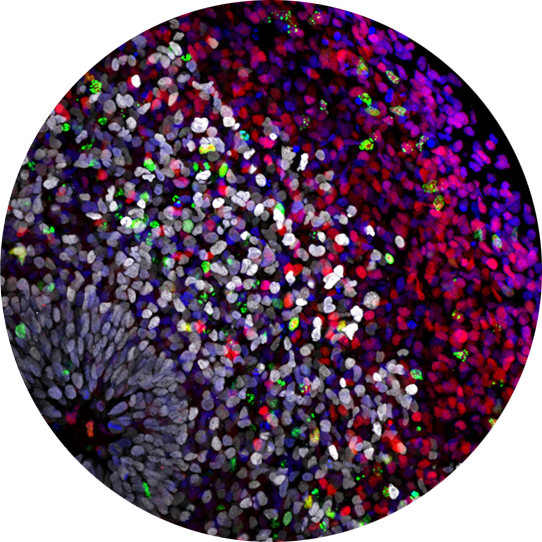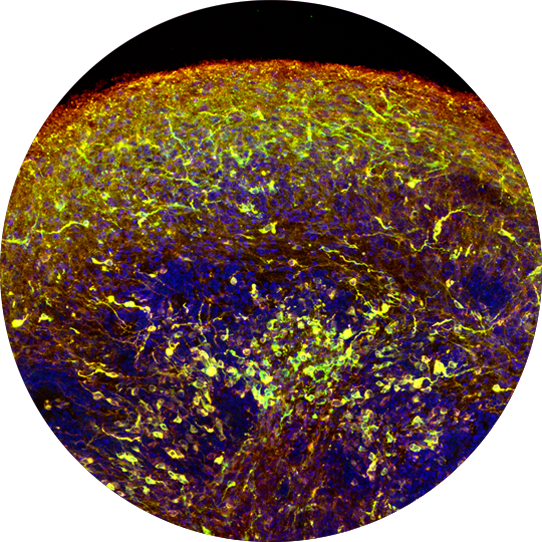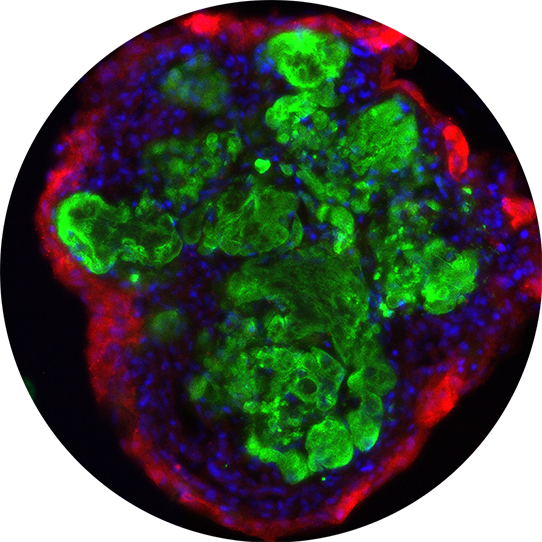
 |
About | Technology | Products | Services | Contact |
|
3D Organoids Human pluripotent stem cells can be directed to differentiate into all cell types and organ-like (organoid) tissues in the body. For example, iPSCs can give rise to brain-region specific tissues, such as forebrain and midbrain, heart, liver, lungs, etc. These three-dimensional (3D) organoids are more genetically and physiologically similar to endogenous human tissues than cells grown on monolayer. Therefore, 3D organoids may better serve as alternative models to study disease mechanism, to perform drug/toxicity screening, and to validate specific hits obtained from a high throughput screen, than traditional systems. Indeed, the performances of brain organoids have been successfully tested in separate studies of ZIKA and COVID infections and validations of drug hits. Additionally, organoids may serve as a renewable source of cells for future regenerative medicine purposes and cell-based therapeutics. |
 Forebrain |
 Hippocampus |
 Midbrain |
 Liver |
Applications of iPSC-derived Organoids
|
| 1) Human induced pluripotent stem cells (iPSCs) are reprogrammed from a donor's or patient’s cells; 2) iPSCs are directed to differentiate into 3D tissues; 3) 3D tissues recapitulate human organ development and can be used to model diseases such as Alzheimer’s disease, Glioblastoma multiformed (GBM), etc.; 4) Cells derived from 3D tissues could be used in regenerative medicine; 5) 3D tissues could also be used in high throughput screening (HTS) to determine drug efficacy, to validate drugs, and to perform toxicology profiling; 6) Drug hits (or candidates) from the HTS could be used to further develop into effective pharmacotherapies. (Adapted from Nguyen et al., 2016) |
Organoid Disease Models The power of pluripotent stem cells (PSCs) lies not only in their ability to differentiate into any cell types in the body but also in their ability to recapitulate relevant disease phenotypes. Previous PSC-based studies have provided invaluable insights into underlying causes of many human disorders, such as Parkinson’s, Schizophrenia, and many others. In addition to conventional PSC-based approaches, we are also developing more advanced disease models that can be faithfully recapitulated in 3D organoid systems, such as Alzheimer’s and Glioblastoma. These 3D models will serve as excellent platforms for the next generation of drug discovery and development. |
 Alzheimer's Disease Organoids |
 Glioblastoma Organoids |
Discover how 3Dnamics can help with your project |
© 2017 3Dnamics Inc. | 12358 Parklawn Drive, Suite 250A, Rockville MD 20852 | contact@3Dnamics.com |